Boston, MA - In a case that highlights the complexities of institutional policies during the COVID-19 era, John Beaudoin Sr., a self-represented engineer, has brought a lawsuit against the Massachusetts School of Law, its Director of Admissions Rohit Bhasin, and Dean Michael Coyne. The case, which was recently heard in an appeals court, revolves around alleged promises made by the school regarding vaccine exemptions and the subsequent handling of these exemptions.
John Beaudoin had a signed statement from a Catholic Deacon affirming Beaudoin’s desire for a religious exemption.
This case is even more insane because the dean of the school, Michael L. Coyne, contacted the Deacon who wrote Beaudoin’s legal exemption and contradicted his support. He even included articles that promoted Catholic submission to the jabs.
Case Background:
Initial Promise: In August 2020, before the availability of the COVID-19 vaccine, Beaudoin received an email from Bhasin stating that individuals over 30 would not need to show proof of vaccination, including for flu and COVID-19, which Beaudoin claims influenced his decision to enroll at the school.
Policy Change: By June 2021, the school implemented a policy requiring all students to provide proof of COVID-19 vaccination or obtain an exemption. Beaudoin sought an exemption based on his religious beliefs and a medical condition, which he claims left him deaf in one ear after a childhood vaccination.
Exemption Process: Beaudoin utilized the school's online exemption process, filling out forms but also modifying parts of the application he disagreed with. He provided a letter from a deacon but later clarified that this was not an endorsement but merely confirmation of his faith.
Legal Arguments:
Contract Breach: Beaudoin argues that the initial email from Bhasin constituted a contractual promise which the school breached when it later required him to provide vaccination proof or face exclusion from campus. He contends that the promise was an inducement for his enrollment.
Negligent Misrepresentation: He also claims that the email from Bhasin was a negligent misrepresentation upon which he detrimentally relied.
Chapter 93A Claim: Beaudoin invokes Massachusetts' consumer protection law, alleging unfair or deceptive acts by the school, although his claim here faces challenges due to the school's nonprofit status potentially removing it from the scope of "trade or commerce" under the law.
Defense's Stance:
The school's attorney argued that the email's conditions were clear, requiring a doctor's note for exemption, which Beaudoin did not adequately provide. They maintain that the exemption process requires complete and proper documentation, which was not met in this case.
They also clarified that the school's policy was not a breach but an evolution of health policy in response to changing circumstances during the pandemic.
Court's Deliberation:
The discussion centered around whether Beaudoin’s claims were sufficient to establish standing in court, focusing on the interpretation of the email exchange as a contractual obligation and the validity of his exemption request process.
The ambiguity in the contract's interpretation was debated, with justices exploring whether this should be a matter for jury decision due to potential ambiguities.
Outcome and Implications: The case's outcome remains pending, but the hearing revealed a keen interest in whether such informal communications can form binding contracts and the responsibilities of educational institutions in adhering to their stated policies. This case might set a precedent on how statements from admissions personnel can be legally interpreted during rapidly changing health crises like the COVID-19 pandemic.
One this is for certain. Massachusetts School of Law certainly gave John Beaudoin an education in the law, just not the one he expected.
Case Summary: John Beaudoin vs. Rohit Bhasin and Others
Parties Involved:
Plaintiff: John Beaudoin Sr., an engineer acting pro se.
Defendants: Rohit Bhasin (Director of Admissions), Michael Coyne (Dean), and the Massachusetts School of Law.
Case Background:
John Beaudoin was involved in a dispute with the Massachusetts School of Law concerning vaccine policies during the 2020-2021 period. The case addresses issues of contract breach and claims under Massachusetts General Laws Chapter 93A (Consumer Protection).
Key Points:
Initial Contractual Promise:
Email Correspondence (August 2020): Beaudoin received an assurance from Bhasin that if he was over 30, he would not need to provide proof of vaccination, including for flu and COVID-19. This was pivotal as it allegedly influenced Beaudoin’s decision to enroll at the school.
Subsequent Policy Change:
In 2021, the school announced a new policy requiring proof of vaccination, which contradicted the earlier email. This led to Beaudoin seeking an exemption.
Exemption Process:
Religious and Medical Exemptions: The school's website offered forms for exemptions. Beaudoin completed the forms but encountered issues:
He crossed out parts of the form he disagreed with.
He provided a letter from a deacon but later distanced himself from needing the deacon's endorsement for his religious beliefs.
Allegations:
Breach of Contract:
Beaudoin claims the school breached its contract by requiring proof of vaccination contrary to the email promise.
He also alleges the exemption process was not properly executed; there was no ruling on his exemption, and he was unenrolled without resolution.
Negligent Misrepresentation:
Beaudoin alleges that the initial promise by Bhasin was a negligent misrepresentation, influencing his decision to attend the school.
Chapter 93A Claim:
This claim is based on the premise that the school's actions constituted unfair or deceptive acts in the conduct of trade or commerce. However, the defense argues that educational institutions generally fall outside the scope of "trade or commerce" under 93A due to their nonprofit status.
Defense Arguments:
The defense contends:
The August 2020 email was conditioned on medical advice, which Beaudoin did not sufficiently provide.
The exemption process required complete documentation, which was not met, particularly regarding religious endorsement.
The school's change in policy was within its rights, and any promises made by Bhasin were not enforceable as they were not part of the official policy or contract.
Legal Considerations:
The court discusses the ambiguity in contract interpretation, whether Bhasin’s email created a binding contract, and the applicability of 93A to educational institutions and their agents.
Outcome:
The case focuses on whether Beaudoin’s complaint sufficiently pleads facts for standing, particularly around contractual obligations and the exemption process. The discussion suggests a potential for reversal of the lower court's dismissal on standing if ambiguities or procedural lapses in the exemption process are considered significant enough for a jury to decide.




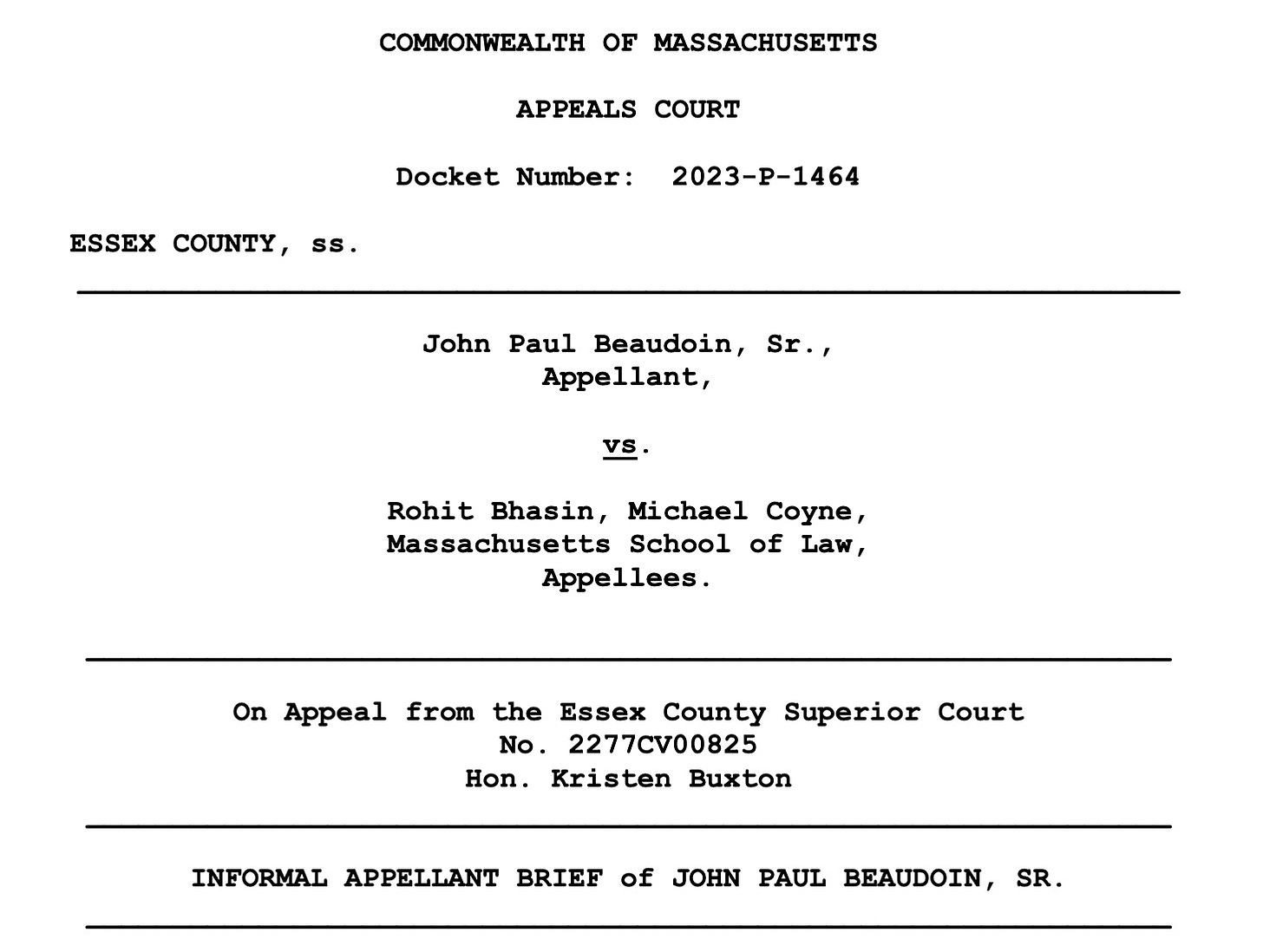
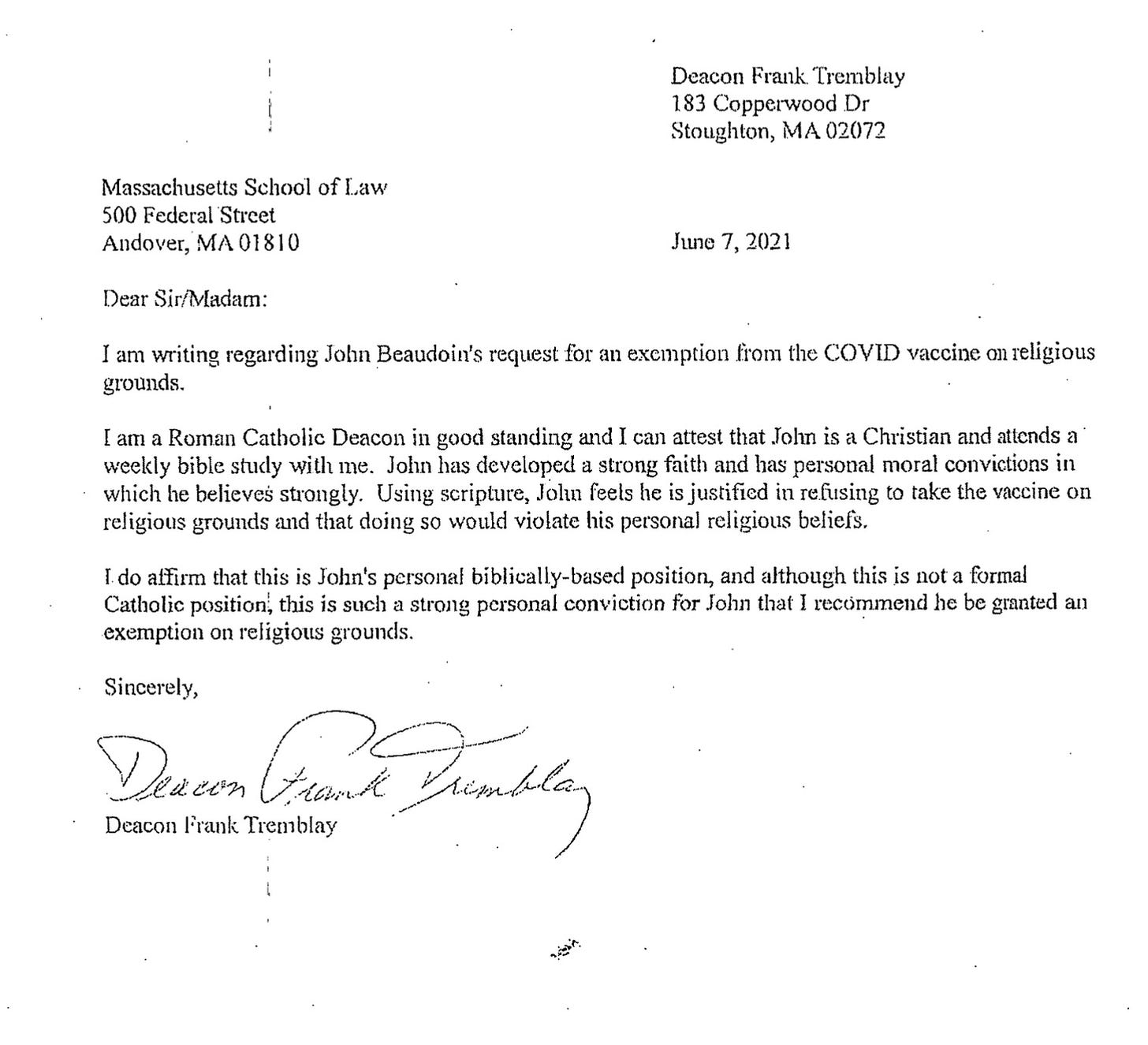
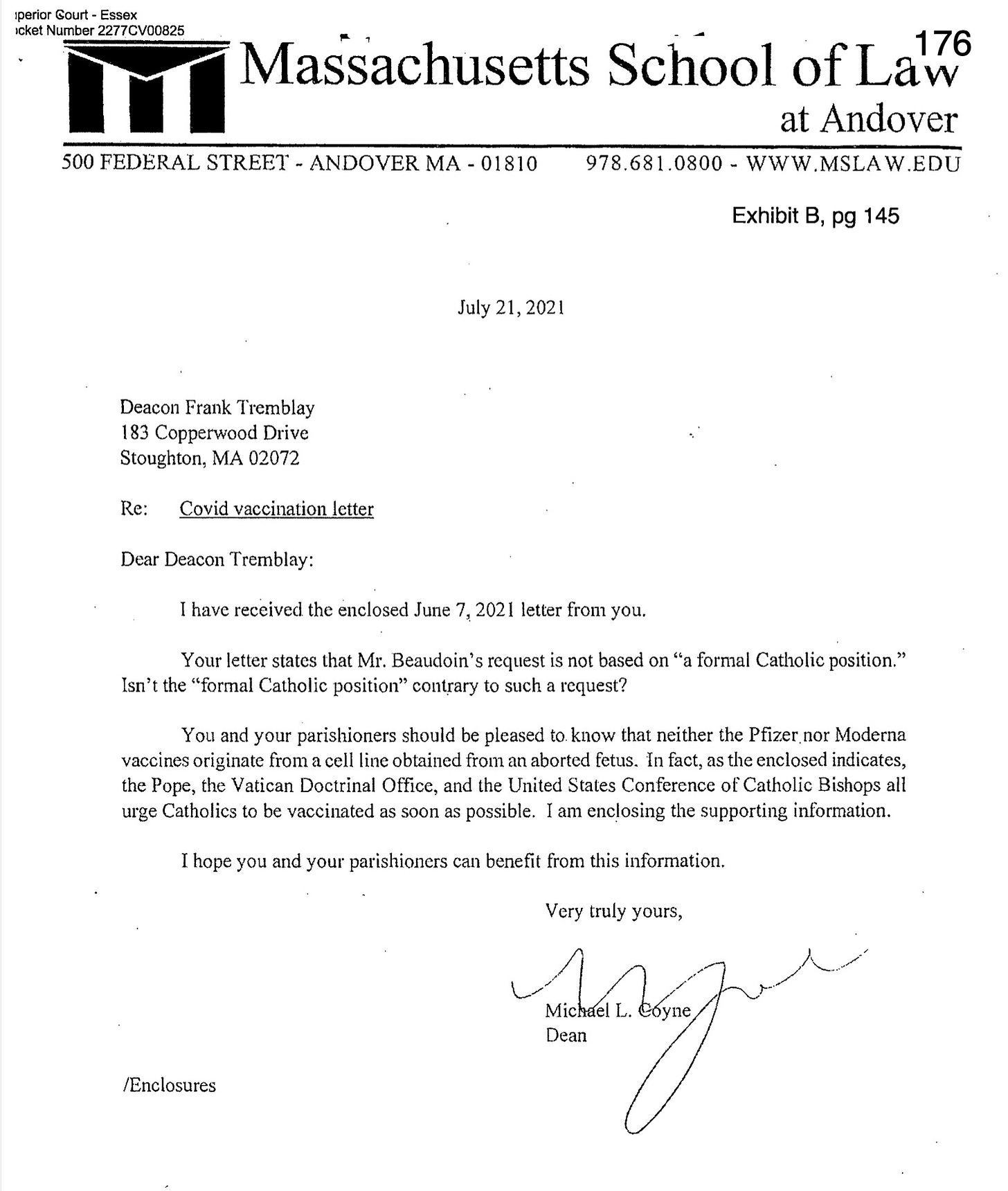
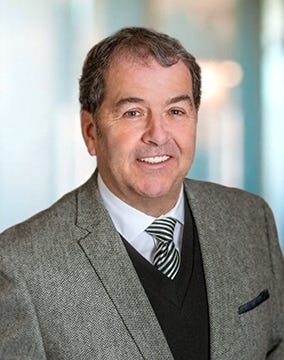
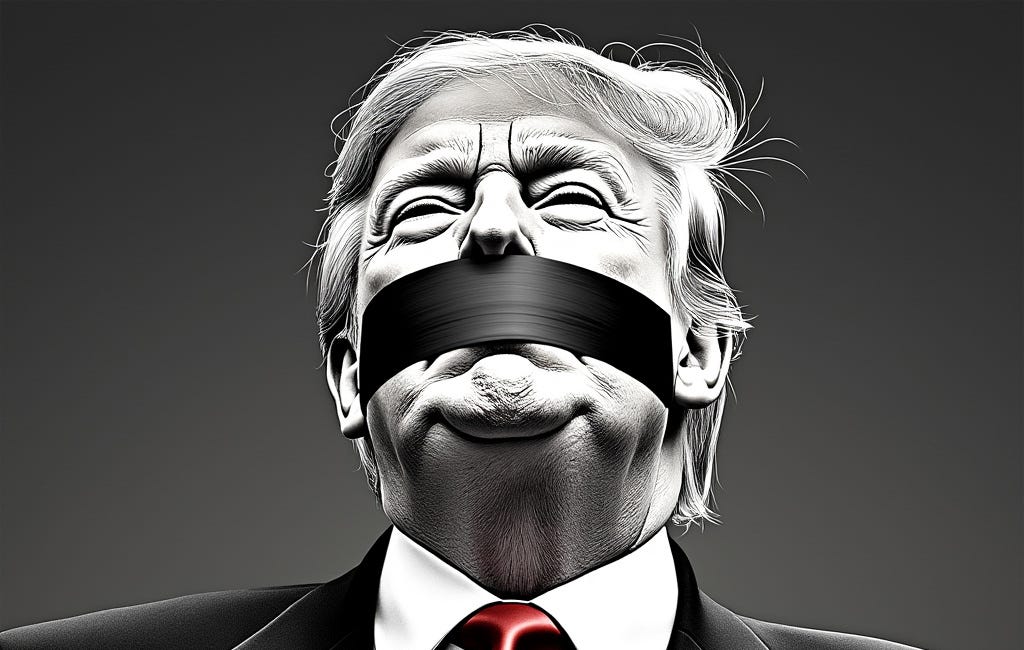








Share this post